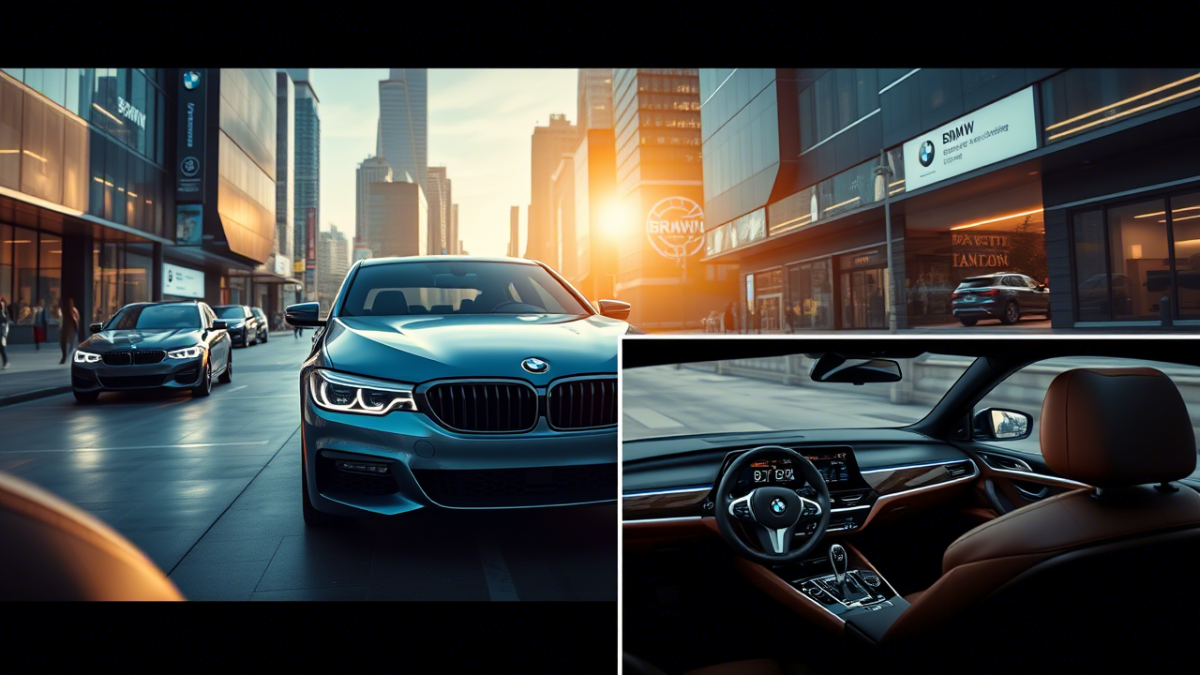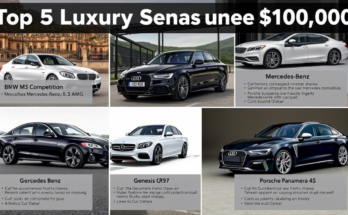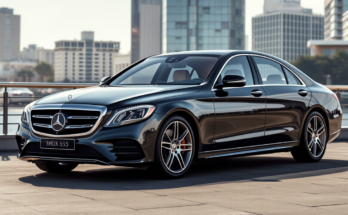Luxury brands are uniquely positioned in the market, offering more than just products—they deliver experiences, status symbols, and unparalleled craftsmanship. Among these elite names, BMW is a beacon of automotive excellence. Renowned for its engineering prowess, cutting-edge technology, and sleek designs, BMW has consistently captured the hearts of car enthusiasts worldwide. This article delves into reviews of luxury brands like BMW, exploring what makes them desirable and how they continue redefining luxury.
The Legacy of BMW: More Than Just Cars
BMW is not merely an automobile manufacturer but a legacy built on innovation, performance, and style. Established in 1916, the brand began as an aircraft engine producer before transitioning to motorcycles and cars. Over the decades, BMW has become one of the most recognizable luxury brands globally. Its iconic blue-and-white logo symbolizes precision and sophistication, qualities that resonate deeply with consumers seeking premium vehicles.
Reviews of BMW often highlight the brand’s commitment to delivering driving pleasure. From the roaring engines of the M series to the refined elegance of the 7 Series sedans, every model embodies the company’s philosophy of blending power with grace. Critics frequently praise BMW for striking a balance between sporty handling and luxurious comfort, making it a favourite among discerning drivers.
What Sets BMW Apart from Other Luxury Brands?
In the competitive world of luxury automobiles, standing out requires more than just high price tags and glossy advertisements. BMW achieves this by focusing on three key pillars: performance, design, and innovation. Each pillar contributes to the brand’s overall appeal, ensuring it remains at the forefront of the industry.
Performance is where BMW truly shines. The brand’s engineers have mastered the art of creating engines that deliver both power and efficiency. Whether cruising along city streets or tearing up winding mountain roads, BMW vehicles are engineered to provide an exhilarating experience behind the wheel. Reviews often emphasize the seamless integration of turbocharged engines, adaptive suspensions, and precise steering systems that make every drive feel special.
Design plays an equally critical role in BMW’s success. The brand’s signature aesthetic combines clean lines, bold curves, and minimalist interiors to create a sense of modernity and sophistication. Every detail, from the placement of buttons to the choice of materials, reflects meticulous attention to quality. Leather upholstery, ambient lighting, and customizable dashboards are some of the features that elevate the interior experience.
Finally, innovation sets BMW apart from its competitors. The brand invests heavily in research and development, ensuring its vehicles remain ahead of technological trends. Features like iDrive infotainment systems, advanced driver-assistance technologies, and electric drivetrains showcase BMW’s dedication to pushing boundaries. Reviews frequently commend the brand for its forward-thinking approach, which appeals to tech-savvy buyers looking for futuristic conveniences.
Customer Perspectives: Real-World Reviews of BMW Vehicles
To understand the value of any luxury brand, one must consider the perspectives of actual customers. Online forums, social media platforms, and review websites offer a treasure trove of insights into how BMW owners perceive their vehicles. These real-world accounts provide a balanced view, highlighting strengths and improvement areas.
One recurring theme in customer reviews is the sheer joy of driving a BMW. Many owners describe being behind the wheel as nothing short of euphoric. Words like “responsive,” “agile,” and “smooth” frequently appear in testimonials, underscoring the brand’s reputation for dynamic handling. Even entry-level models receive praise for their ability to deliver a sporty yet comfortable ride.
However, no brand is without its flaws, and BMW is no exception. Some reviewers point out concerns about maintenance costs, noting that servicing a luxury vehicle can be expensive over time. Others mention occasional reliability issues, particularly with older models. Despite these drawbacks, most customers agree that the benefits far outweigh the challenges, especially considering the overall ownership experience.
Another aspect worth mentioning is the emotional connection many owners develop with their BMWs. For some, owning a BMW represents achieving a personal milestone—a reward for hard work and perseverance. Others appreciate the exclusivity associated with the brand, knowing they belong to a select group with similar tastes and aspirations.
Comparing BMW to Other Luxury Brands
While BMW enjoys immense popularity, it operates within a crowded field of luxury automakers, each vying for dominance. Competitors such as Mercedes-Benz, Audi, and Lexus present formidable challenges, forcing BMW to innovate and adapt continually. Understanding how BMW compares to these rivals provides valuable context for potential buyers.
Mercedes-Benz, for instance, is known for its opulent interiors and stately presence. While BMW focuses on sportiness, Mercedes leans toward refinement and grandeur. Reviews often compare the two brands based on individual preferences—those seeking excitement may favour BMW, while those prioritizing comfort might lean toward Mercedes.
Audi, another German powerhouse, competes directly with BMW regarding desiregardingnology. Both brands excel at producing visually striking vehicles equipped with state-of-the-art features. However, Audi tends to emphasize understated elegance, whereas BMW embraces a bolder, more athletic persona. Customer feedback suggests that the decision ultimately depends on whether one prefers subtlety or flair.
Toyota’s luxury division, Lexus, offers a compelling alternative emphasizing reliability and value. While BMW and Lexus cater to different market segments, comparisons are inevitable. Reviews indicate that Lexus vehicles tend to incur lower maintenance costs but lack the raw performance and prestige associated with BMW.
The Future of BMW: Trends and Innovations
As the automotive landscape rapidly transforms, BMW continues to evolve alongside emerging trends. Electrification, autonomous driving, and sustainability are shaping the future of transportation, and BMW is actively investing in these areas. Recent releases, such as the fully electric i4 and iX models, demonstrate the brand’s commitment to reducing carbon emissions without compromising performance.
Industry analysts predict that BMW will maintain its leadership position by embracing new technologies while staying true to its core values. Upcoming innovations include enhanced connectivity features, augmented reality displays, and improved battery efficiency. Reviews suggest that BMW’s willingness to experiment and adapt positions it well for long-term success in an increasingly competitive environment.
Moreover, BMW is expanding its focus beyond traditional markets. Emerging economies in Asia and Africa present untapped growth opportunities, allowing the brand to reach new audiences. By tailoring its offerings to meet diverse needs, BMW aims to solidify its status as a global leader in luxury mobility.

Frequently Asked Questions (FAQs)
Why are BMW cars considered luxury vehicles?
BMW cars are considered luxury Vues because of their superior performance, exquisite design, and innovative technology. They cater to individuals seeking high-end features and exceptional build quality.
Are BMWs reliable compared to other luxury brands?
Reliability varies depending on the specific model and year. Newer BMWs generally exhibit strong reliability ratings, though maintenance costs can be higher than those of non-luxury brands.
What makes BMW different from Mercedes-Benz?
BMW emphasizes sporty performance and driver engagement, while Mercedes-Benz focuses on luxury and comfort. The choice between the two depends on personal priorities.
Do BMWs hold their value over time?
Yes, BMWs typically retain good resale value, especially popular models like the 3 Series and X5. Proper care and regular servicing contribute to maintaining value.
Is buying a used BMW a wise decision?
Purchasing a used BMW can be cost-effective if proper research is conducted. Inspecting the vehicle thoroughly and checking service records before deciding is advisable.
How does BMW plan to address environmental concerns?
BMW is committed to sustainability through initiatives like electrification, lightweight materials, and eco-friendly manufacturing processes. Models like the i4 and iX exemplify this commitment.
Can I customize my BMW to suit my preferences?
Absolutely! BMW offers extensive customization options, allowing buyers to personalize everything from exterior colours to interior finishes.



